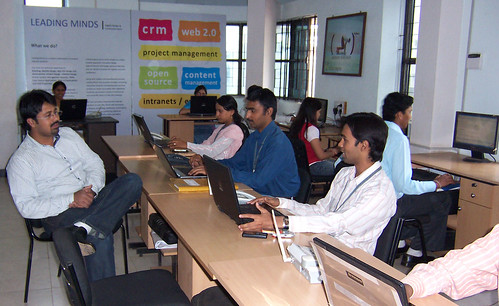Successful, Young, and Muslim-these are the faces of a new generation of Indian Muslims. Swimming as part of the mainstream has brought these enterprising young Muslims face-to-face with a new set of challenges. Read on to discover how they surmount the trials and tribulations of being founders of tech startups… new TwoCircles.net series by Charu Bahri. This is the first of the three parts.
There is a life beyond sitting on the sidelines in hope of a call to action, and it is a life Aadil Bandukwala knows well. Enthused by his firm belief in ‘doing’ as being the key to inching closer to the pot of gold at the end of the rainbow, Bandukwala was neither content to wait for opportunity to knock at his door and nor would he accept a wildcard. He would make it on his own steam, whatever it took.
And yet, unlike his inspiration, successful serial entrepreneur and engineering college drop-out Mahesh Murthy, Bandukwala decided to educate himself. For starters, he sought to learn the ropes of entrepreneurship by enrolling for a graduate degree in business administration and post-graduate studies in business entrepreneurship.
Graduating at the top of his class only reaffirmed his faith in his abilities to seed and steer a startup to success. His ideas – isn’t that what entrepreneurship is all about – would prevail, by evolving in time to withstand the winds of change constantly blowing over technology-based ventures. LeadingMinds.co.in, Bandukwala’s flagship venture engaged in building flexible, scalable websites and web applications got off the ground in December 2005, barely two months after he graduated.

Aadil Bandukwala with his team
“It was a small beginning, and yet all the more valuable for being my entrepreneurial debut. Ever since I was a kid, I’ve always followed by heart and not my brain. Now as an adult too, I continue to live my dreams. What could be more exhilarating?” says Bandukwala.
To top that, Leading Minds yielded profits Bandukwala was to soon to augment with a loan from his father and invest to further his dream. Barely a year into his entrepreneurial journey, Bandukwala received a business proposal from Dr Ranjit Nambudri, an ex-faculty member at the Entrepreneurship Development Institute (EDI) at Ahmedabad, who was then Assistant Vice President – Recruitment at Genpact, Hyderabad.
When racking his brains for a means to infuse stability to BPO staff rolls ever-plagued by high attrition rates, Dr Nambudri had cottoned onto the thought that Bandukwala’s hometown Belgaum would be a good market to source BPO talent for Genpact’s Bangalore and Hyderabad offices. Bandukwala jumped at the opportunity, but not because of the business interest – “Solely because Ranjit is one of the most subtle, impressive and intellectual professors I’ve come across till date and this was a perfect opportunity to learn from him. I reckoned I could brush up my basics while implementing the Beta campaign.”
A revenue model and business contract would follow, as would more clients if this one-time assignment was satisfactorily implemented. Thirty walk-ins would be promising, thought Dr Nambudri even though in all his enthusiasm, Bandukwala somewhat rashly promised him 200 plus. As fate would have it, Bandukwala was to have the last word – the head count on the day topped 300. Bandukwala had proved his mettle and in doing so, he had also amply verified his mentors’ idea and justified the launch of Talent Onions, his second tech-based startup, a manpower consulting venture and provider of Internet recruitment and job search solutions.

Aadil Bandukwala with his team members
Even these moderate successes qualified an upcoming Bandukwala to join the ranks of a minority within a minority. At 13.4 percent of the total population of 1029 million (2001 census), India’s 138 million Muslims make up India’s largest religious minority. With 31 percent of the community living below the poverty line, Muslims record the second highest incidence of poverty.
In 2006, a high-level committee appointed by the Government of India and headed by Justice Sachar was constituted to investigate whether this minority has been marginalized and thence, whether living on the fringe accounts for its backwardness. The study led to eye-opening revelations. By and large, reported the Sachar Committee, Muslims believe that modern education offers low returns. Consequently, few Muslims benefit from education across the board, from primary schooling to graduate levels.
To quote from the committee’s Social, Economic and Educational Status of the Muslim Community of India report, as many as 25 per cent of Muslim children in the 6-14 year age group have either never attended school or have dropped out. The situation is equally dismal as the ladder is scaled – where approximately 17 percent of the population holds a graduate degree this figure drops to near 4 percent among Muslims. Overall, the literacy rate among Muslims in 2001 was 59.1 % which is well below the national average (65.1 %).
Second part: Education, a great equalizer

